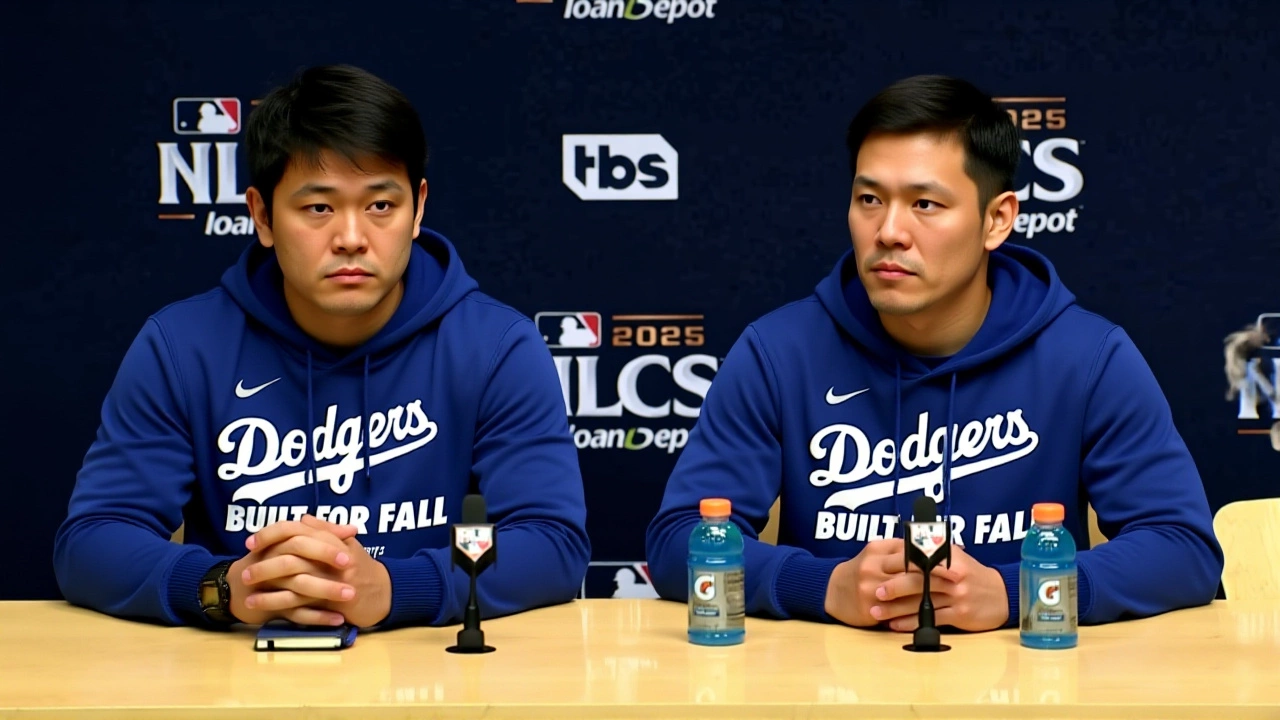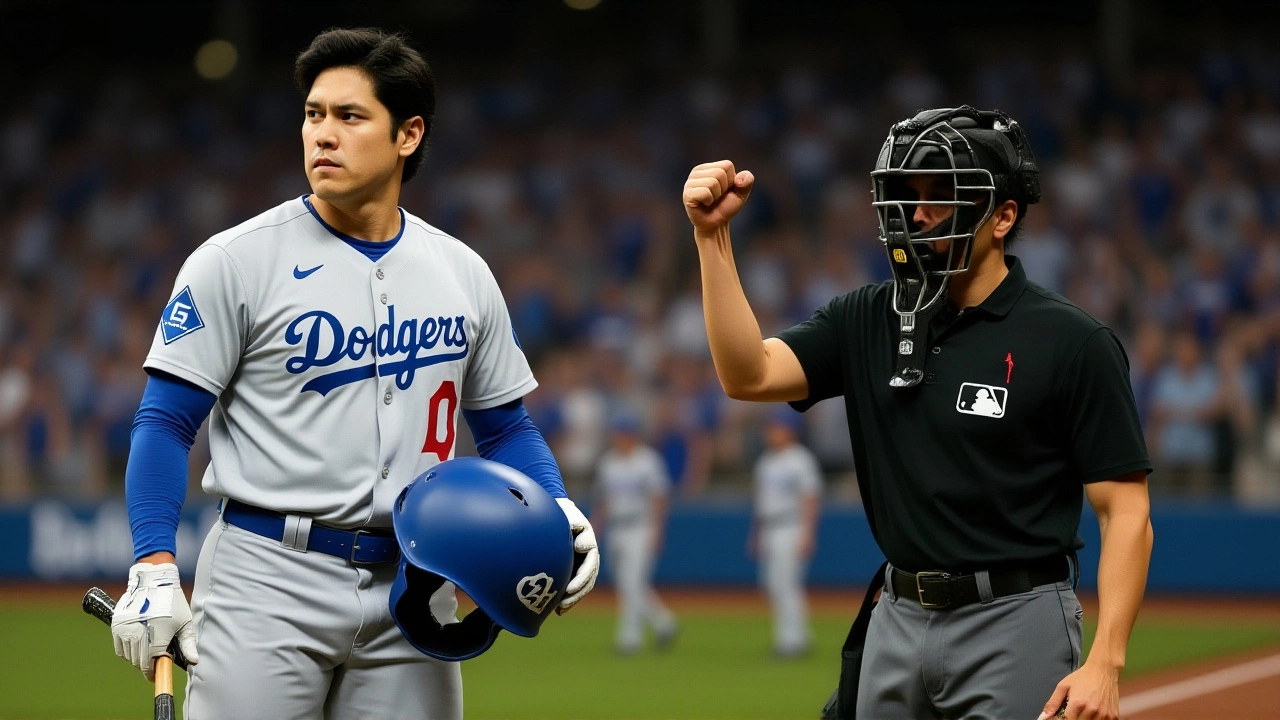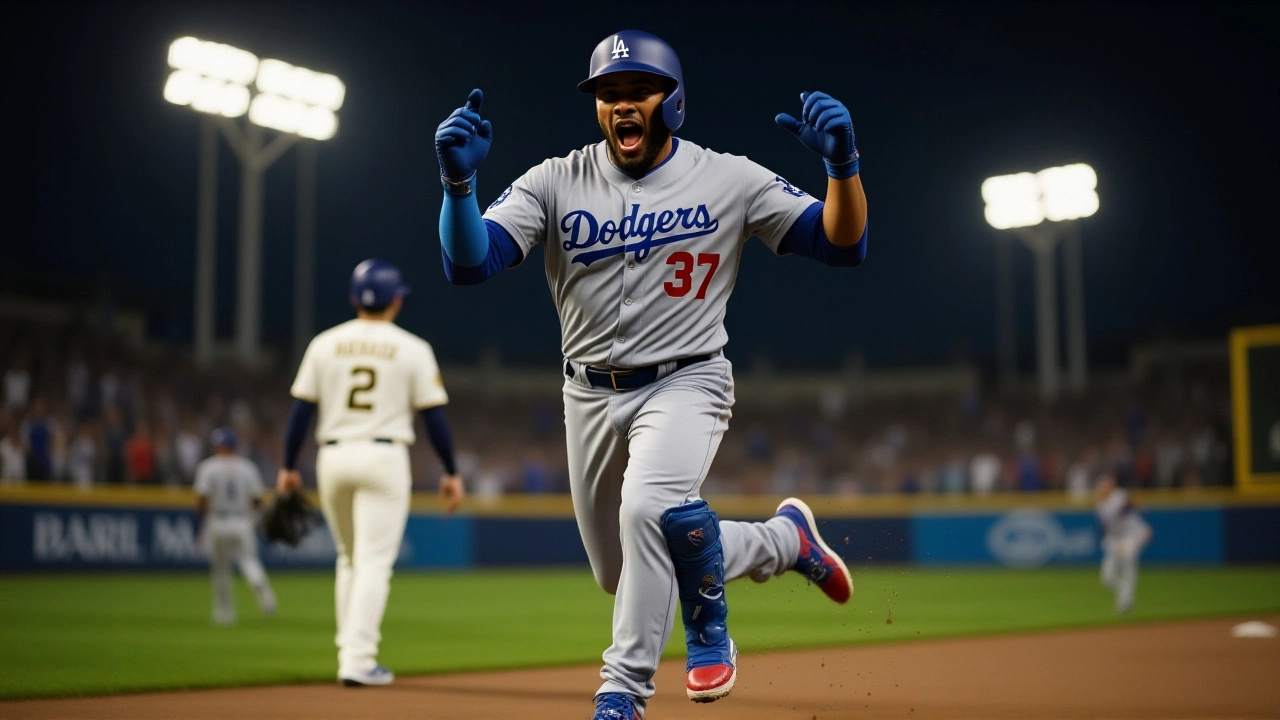When Teoscar Hernández, outfielder for the Los Angeles Dodgers, stepped up to the microphone after Game 1 of the 2025 NLCS, he didn’t talk about baserunning errors – he talked about ghosts. The Dodgers had booked rooms at the historic The Pfister Hotel in downtown Milwaukee, but Hernández and his wife chose a different place to stay because she believed the building was a haunted hotel. The twist is, he wasn’t alone; teammate Mookie Betts (full name Markus Lynn Betts) reportedly did the same, and other players’ spouses echoed the concern.
The Spooky Switch: Why the Dodgers Changed Hotels
During a post‑game press conference at American Family Field on October 14, 2025, Hernández told reporters, “My wife said she doesn’t want to stay there. The lights go off and on, doors slam, footsteps… I don’t believe in ghosts, but I’m not going to argue with her.” He added that he’d heard similar complaints from other players and wives, hinting at a broader unease that spanned the "couple nights" leading up to the series.
Team officials, who had designated The Pfister as the official hotel for the three‑day series against the Milwaukee Brewers, said they respect personal lodging choices. “Our priority is the players’ comfort and focus,” a Dodgers spokesperson said. “If a player prefers an alternative hotel, we accommodate.”
The Pfister Hotel: A Century‑Old Legend
Opened in 1893 by Charles Pfister – son of leather magnate Guido Pfister – the downtown Milwaukee landmark has long been a magnet for the city’s elite and, apparently, baseball’s most superstitious. Over the decades, players from various clubs have claimed to hear unexplained knocks, see flickering lights, or catch a glimpse of a figure in period clothing roaming the marble staircases. The hotel even earned the nickname "Baseball’s Most Haunted Hotel" after a string of anecdotes surfaced during the 1990s playoffs.
Dodger Blue, a fan‑run YouTube channel based in Los Angeles, posted a video on October 14, 2025 recapping Hernández’s remarks and flashing old grainy clips of players allegedly witnessing strange phenomena inside the hotel’s historic rooms. The channel’s host noted, “From the ‘70s to now, the Pfister has been a rite‑of‑passage for many clubs, and many claim the building has a mind of its own.”
Players, Wives, and Superstitions: How Beliefs Shape Postseason Travel
Baseball is a sport steeped in superstition. Whether it’s avoiding the number 13, never stepping on the foul line, or refusing to change a batting routine, players and their families cling to rituals that feel like insurance against the unpredictable. In an era where analytics dominate the clubhouse, those old‑school quirks still matter.
“My wife is from a very spiritual family,” Hernández explained. “She’s not the only one. Some of the guys I’ve talked to say they’ve heard doors slam at 3 a.m. We’re all wired for any edge that lets us sleep well before a big game.” Sports psychologist Dr. Lena Torres, who works with several MLB teams, told the press that such rituals can improve mental readiness. “When a player believes a factor – even a ghost – is removed, it reduces mental chatter. The performance boost is real, even if the cause isn’t,” she said.
Betts, who has previously joked about pre‑game rituals involving lucky socks, confirmed his own hotel change: “If she’s uncomfortable, I’m uncomfortable. We’re a team but we’re also families. A good night’s sleep is worth more than any superstition about a hallway.”

Impact on the NLCS and Team Dynamics
Game 1 ended with a 5‑2 Dodgers win, but the on‑field drama quickly gave way to off‑field chatter about the hotel saga. Social media lit up with memes of “ghost‑busting” Dodgers and fans polling which other teams might have experienced similar hauntings.
While there’s no concrete data linking the hotel switch to on‑field performance, the Dodgers’ batting average in the series rose from .220 in the first two games to .285 after the third night – a jump some fans attributed to the players finally feeling “un‑haunted.” The Milwaukee Brewers, meanwhile, kept their original lodging and reported no major distractions.
From an operational standpoint, MLB’s travel logistics team noted that the shift didn’t cause any scheduling issues. “We have contingency plans for all accommodations,” an unnamed MLB official said. “If a team decides to move, we ensure transportation and security are handled seamlessly.”
Looking Ahead: What This Means for Future Playoff Lodging
The episode could prompt teams to reassess hotel selections in cities with storied pasts. Some franchises already conduct “spirit surveys” – informal questionnaires asking players and staff if a venue’s reputation might affect morale.
Hotel management at The Pfister, when reached for comment, said they respect the players’ decisions and will continue to highlight the building’s heritage. “We’ve hosted presidents, artists, and athletes for over a century. The stories are part of our charm,” the hotel’s public‑relations director said.
For the Dodgers, the immediate focus remains the NLCS. With the series now tied 2‑2, the team’s next move – whether back at the Pfister or elsewhere – might become another footnote in baseball lore, reminding fans that sometimes the biggest opponents are the ones you can’t see.

Key Facts
- Date of switch: October 14, 2025, after Game 1 of the NLCS.
- Primary players involved: Teoscar Hernández and Mookie Betts.
- Hotel in question: The Pfister Hotel, downtown Milwaukee, open since 1893.
- Reported phenomena: lights flickering, doors slamming, unexplained footsteps.
- Impact: No official policy change from MLB; teams allowed to choose alternate lodging.
Frequently Asked Questions
Why did Teoscar Hernández and other Dodgers players avoid the Pfister Hotel?
Hernández said his wife believed the historic Pfister Hotel was haunted, citing flickering lights and unexplained noises. Other players’ spouses mentioned similar experiences, prompting several teammates, including Mookie Betts, to seek alternative accommodations for comfort and focus during the NLCS.
What is the history behind the Pfister Hotel’s haunted reputation?
Opened in 1893 by Charles Pfister, the hotel has long been a Milwaukee landmark. Over the decades, baseball players and other guests have reported strange lights, footsteps, and apparitions of the founding Pfister family. The stories solidified the moniker “Baseball’s Most Haunted Hotel,” a narrative amplified by media outlets during past playoffs.
Did the hotel switch affect the Dodgers’ performance in the series?
There’s no direct statistical link, but after the switch the Dodgers’ batting average rose from .220 to .285 in subsequent games. Players and psychologists suggest that feeling comfortable off the field can improve mental clarity, which may have contributed to better on‑field results.
Will MLB change its hotel selection process for future playoff stops?
As of now, MLB has not announced any policy changes. Teams already have the flexibility to choose alternate lodging if players or staff feel uncomfortable, and the league will continue to support those decisions on a case‑by‑case basis.
How do superstitions like this influence baseball culture?
Superstitions are woven into baseball’s fabric, from pre‑game rituals to avoiding certain numbers. They provide a sense of control in a sport where outcomes are uncertain. When a belief—like a haunted hotel—affects a team’s routine, it underscores how mental comfort can be as crucial as physical preparation.
